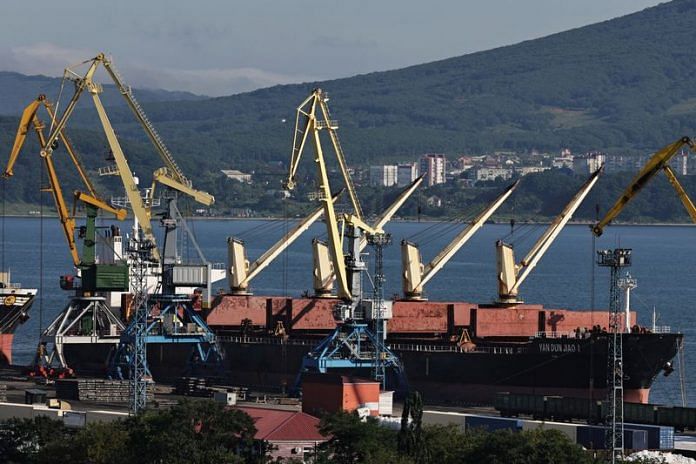By Shadia Nasralla
LONDON (Reuters) -Oil prices were stable on Friday in thin market liquidity, closing a week marked by worries about Chinese demand and haggling over a Western price cap on Russian oil.
Brent crude futures were up 22 cents, or 0.3%, to trade at $85.56 a barrel at 1447 GMT, having retraced some earlier gains.
U.S. West Texas Intermediate (WTI) crude futures were up 43 cents, or 0.6%, at $78.37 a barrel. There was no WTI settlement on Thursday due to the U.S. Thanksgiving holiday and trading volumes remained low.
Both contracts were headed for their third consecutive weekly declines after hitting 10-month lows this week.
Brent’s market structure implies current demand is softening, with backwardation, defined by front-month prices trading above contracts for later delivery, having weakened markedly in recent sessions.
For the two-month spread, Brent’s structure even dipped into contango this week, implying oversupply with near-term delivery contracts priced below later deliveries.
China, the world’s top oil importer, on Friday reported a new daily record for COVID-19 infections, as cities across the country continued to enforce mobility measures and other curbs to control outbreaks.
This is starting to hit fuel demand, with traffic drifting down and implied oil demand around 1 million barrels per day lower than average, an ANZ note showed.
Meanwhile, G7 and European Union diplomats have been discussing a Russian oil price cap between $65 and $70 a barrel, but an agreement has still not been reached ahead of talks expected to resume on Friday.
The aim is to limit revenue to fund Moscow’s military offensive in Ukraine without disrupting global oil markets, but the proposed level is broadly in line with what Asian buyers are already paying.
Trading is expected to remain cautious ahead of an agreement on the price cap, due to come into effect on Dec. 5 when an EU ban on Russian crude kicks off, and ahead of the next meeting of the Organization of the Petroleum Exporting Countries and allies on Dec. 4.
(Additional reporting by Sonali Paul in Melbourne and Trixie Yap in SingaporeEditing by Mark Potter and Louise Heavens)
Disclaimer: This report is auto generated from the Reuters news service. ThePrint holds no responsibilty for its content.



